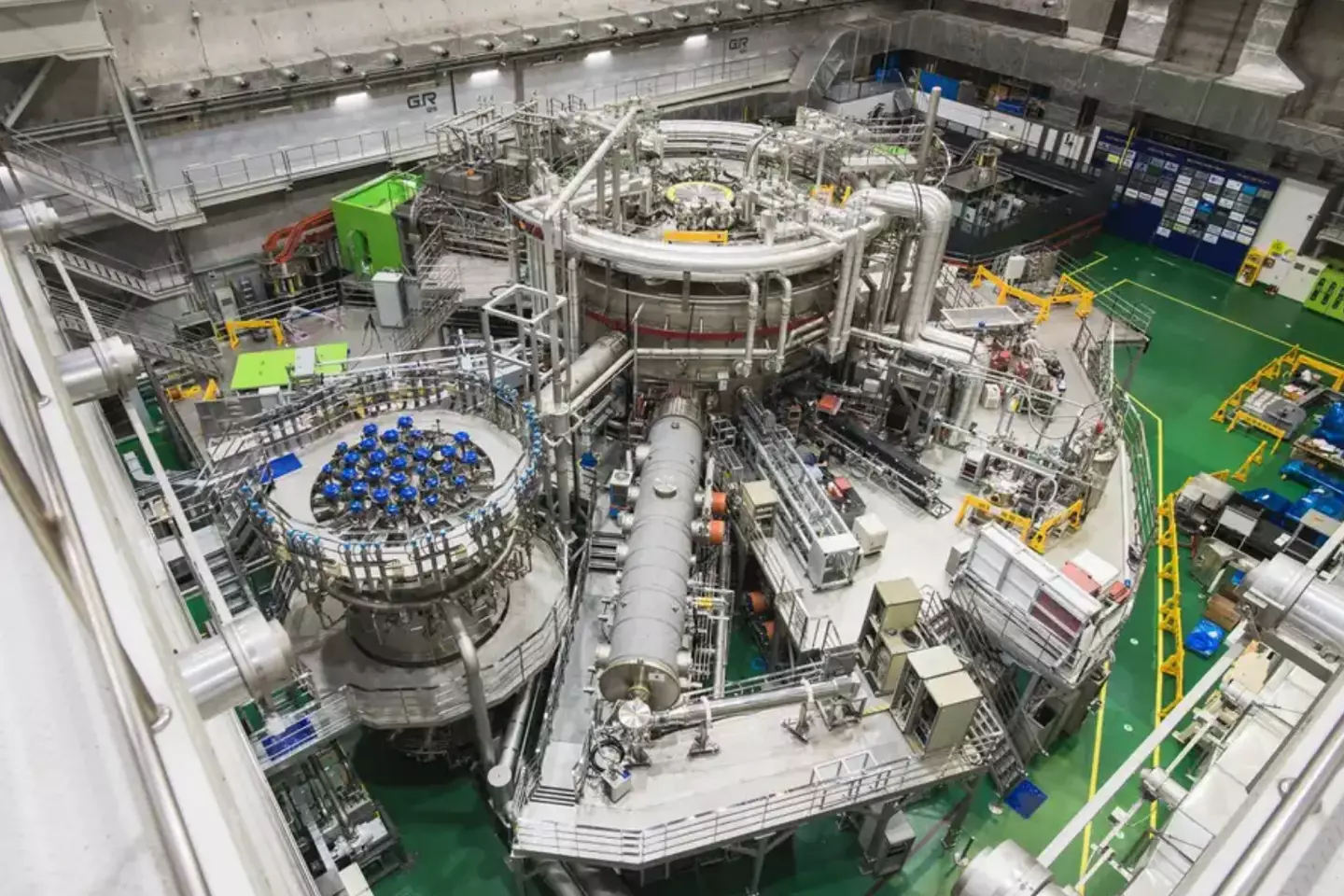
South Korea’s nuclear fusion reactor, also known as an 'artificial sun', holds the record for reaching the highest heat in just 20 seconds.
Back in 2022, the reactor reached 100 million degrees for more than 20 seconds - which could be a major breakthrough in a solution for creating 'unlimited clean energy'.
According to the scientists from Seoul National University and the Korea Institute of Fusion Energy, the Korea Superconducting Tokamak Advanced Research (KSTAR) reactor was remarkably able to create temperatures up to seven times hotter than the actual Sun.
Watch the video here:
Advert
The 'artificial sun' uses technology that aims to produce the same amount of energy as traditional methods - without emitting greenhouse gases or nuclear waste.
Yoo Suk-jae, president of the Korea Institute of Fusion Energy, said in a statement: "We usually say that fusion energy is a dream energy source – it is almost limitless, with low emission of greenhouse gases and no high-level radioactive waste – [but the latest breakthrough] means fusion is not a dream."
And scientists working on the reactor hope that, by 2026, they'll be able to sustain it for 300 seconds or five minutes.

KSTAR director Yoon Si-woo added: “This is not the end of the story, we must move on to 300 seconds – 300 is the minimum time frame to demonstrate steady-state operations, then this plasma can work forever. If we can’t achieve that, we have to do something else."
As reported by NewScientist, Dominic Power at Imperial College London said: "This team is finding that the density confinement is actually a bit lower than traditional operating modes, which is not necessarily a bad thing, because it’s compensated for by higher temperatures in the core.
"It’s definitely exciting, but there’s a big uncertainty about how well our understanding of the physics scales to larger devices."

Lee Margetts at the University of Manchester also explained: "It’s not physics, it’s engineering.
"If you just think about this from the point of view of a gas-fired or a coal-fired power station, if you didn’t have anything to take the heat away, then the people operating it would say ‘we have to switch it off because it gets too hot and it will melt the power station’, and that’s exactly the situation here."
While Brian Appelbe at Imperial College London added: "The magnetic confinement fusion approach has got a pretty long history of evolving to solve the next problem that it comes up against.
"But the thing that makes me kind of nervous, or uncertain, is the engineering challenges of actually building an economical power plant based on this."
